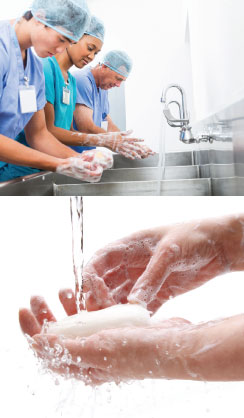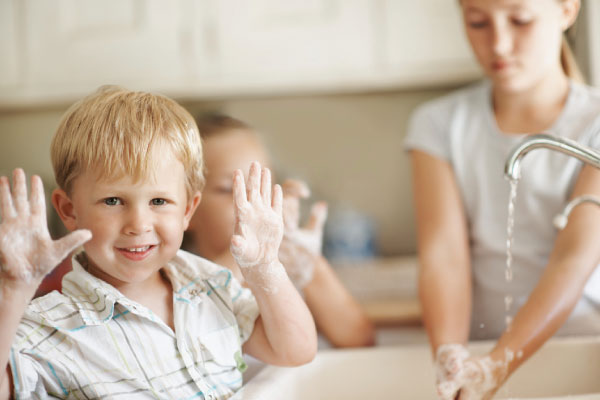Research shows that 95 per cent of people claim to practice proper hand hygiene. Yet studies reveal that only 67 per cent practice any sort of hand hygiene at all! Dr Jinan Harith Darwish tells us more about it.
Hand washing has been a common practice since the Roman times. Yet, throughout history, its benefits for the control of infection have been, and still remain, frequently overlooked.
In 1847, a Hungarian obstetrician by the name of Ignaz P Semmelweis illustrated that hand washing and cleanliness decreased infections in newborns. Dr Semmelweis attempted to promote hand washing and cleanliness among his colleagues, who were so offended that they committed him to an insane asylum!
That was 168 years ago and times have changed. Semmelweis’ claims have been proven true and it is now a well-known certainty that indeed, hand washing greatly reduces the spread of disease and its importance is preached to school
children everywhere.
 Hand washing with soap is a life-saving intervention within the technological and financial reach of all countries and communities. Research shows that a USD3.35 investment in hand washing brings the same health benefits as an USD11 investment in latrine construction, a USD200 investment in household water supply and an investment of thousands of dollars in immunisation.
Hand washing with soap is a life-saving intervention within the technological and financial reach of all countries and communities. Research shows that a USD3.35 investment in hand washing brings the same health benefits as an USD11 investment in latrine construction, a USD200 investment in household water supply and an investment of thousands of dollars in immunisation.
Around 80 per cent of communicable diseases are transferred by touch. Chiefly the touching of food or one’s own mouth, eyes and nose. It is not simply person-to-person contact.
Most missed areas during hand washing include thumbs, fingertips, and the top of the hand where bacteria can be harboured after ineffective hand washing and spread from child to child.
Proper hand washing is extremely important for infants and toddlers. Research has shown that infants are especially vulnerable to infectious disease between six and nine months of age, when the protection of being in-utero wears off. From that point, it takes until children are around two years before their immune systems are fully functioning.
For pre-schoolers, studies have shown that deficiencies in hand washing have contributed to many outbreaks of diarrhoea among children and caregivers in child care centres. In centres that have implemented a hand-washing training programme, the incidence of diarrhoeal illness has decreased by 50 per cent.
Another study found that hand washing helped to reduce colds when frequent and proper practices were incorporated into a child care centre’s curriculum.
Finally, when hand washing is done correctly by children and adults there can be a 17 per cent reduction in respiratory infections for young children. This translates to preventing more than 100,000 colds per year. In a study in Detroit, USA, children showed that those who washed their hands had 24 per cent fewer sick days due to respiratory illness and 51 per cent fewer sick days due to upset stomach.





































